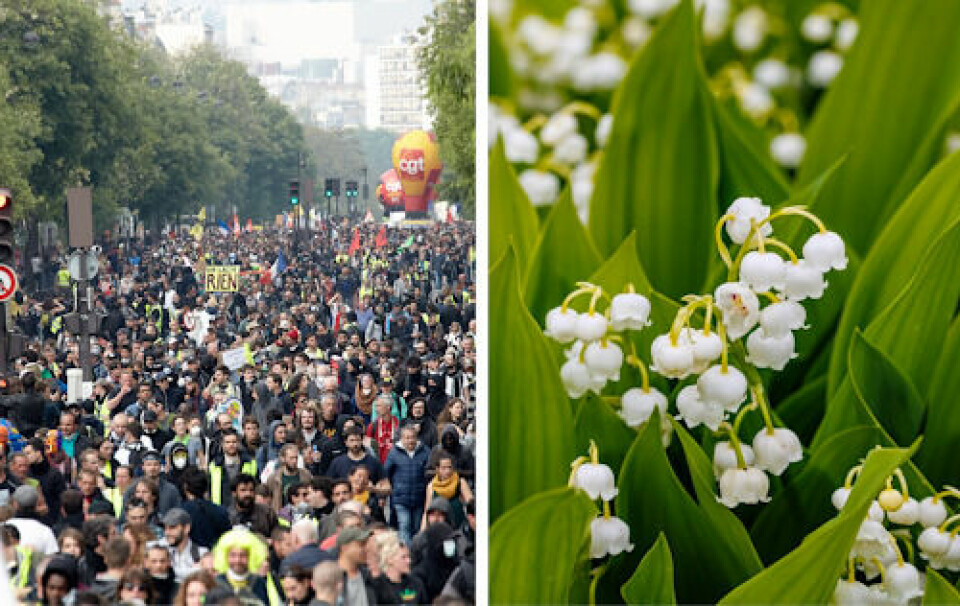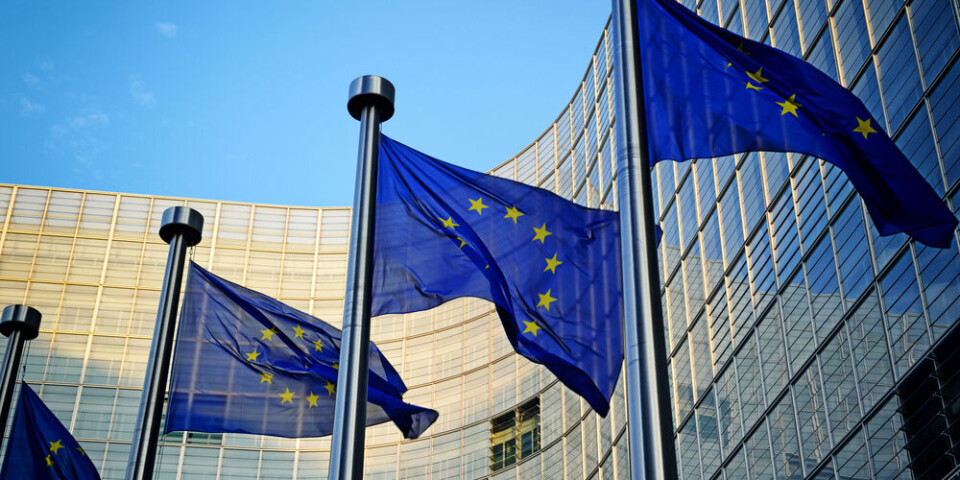-
Key Alpine pass to reopen this summer after €6m repairs
The col d'Allos in Alpes-de-Haute-Provence has been closed since 2023 due to severe weather
-
Why 500,000 people in France will soon be getting a call from health officials
A new campaign will target certain individuals with particular health conditions
-
Receive a book and a rose: France prepares to celebrate its independent bookshops
The 27th edition of the Fête de la librairie indépendante will take place tomorrow (April 26)
Covid support: Brittany eases hospital pressure
Brittany has welcomed severely-ill patients from across France to ease hospital pressure, as figures suggest the situation may be slowly improving

Covid-19 patients from all over France are being transferred to hospitals in Brittany, to ease intense hospital pressure in their own regions - although the infection rate may be beginning to stabilise, figures suggest.
As during the first wave, Brittany has not been as badly affected by the second wave of the epidemic as some areas, and hospitals in the region still have margin to receive patients. This has allowed the area to offer much-needed relief to hospitals elsewhere in the country, especially Provence-Alpes-Côte d'Azur.
In the past few weeks, around 20 seriously-ill Covid patients from Avignon and Nîmes have been transferred to Brittany in medicalised planes.
Most of these patients are still in intensive care. There is still capacity for 10 more patients remaining in the region’s units.
One patient, named as Patrick, was initially hospitalised in Avignon near his home, but then transferred 1,000 kilometres to a hospital in Brest. He told news service FranceInfo: “When I woke up, they told me: You are in Brest. I was very surprised, obviously, and asked how I had got there.
“I was made to feel very welcome, these people are lifesavers, I don’t know how to thank them. I will come back when all this is over and we can go out to eat galettes!”
Professor Erwan L’Her, head of the intensive care service, said: “There is a strong link that is created. There are some patients, who, when they returned home, sent us letters and photos saying that they were so happy to be alive, that they were so glad to be back home, and thanking us.
“These are some totally extraordinary life experiences, with extraordinary journeys.”
Liliane Ogor, a care assistant at the Brest hospital, said: “The fact that their loved ones are far away affects [the patients] a lot. I think it affects their morale. We have empathy. We ask ourselves, if that were us, how would we react, how would we feel?
“Patients that are transferred have higher anxiety than others, I think. It affects us especially deeply.”
Éric Stindel, president of the medical commission at the hospital, explained the hospital’s process: “We could have said, ‘Let’s keep Brittany’s beds for Bretons’. But that was out of the question, it was unthinkable, really. So we are really proud to have decided [to offer transfers] and to have totally gone for it.”
Hospital overwhelm easing?
While Covid-19 numbers are still high in France, experts have suggested that recent numbers may be pointing to a slight improvement / possible decline in serious cases.
Anne-Claude Crémieux, professor of infectious diseases at the Saint-Louis hospital in Paris, told FranceInfo: “Over the past few days in the Paris region, we have seen a drop in the number of intensive care admissions.”
However she warned that “we should still stay alert because in September we saw a little improvement, but that was followed by a brutal rise in cases at the start of October”.
Professor Crémieux emphasised that the number of people in hospital had not dropped, and right now it is still “too early to envisage - or not - deconfinement from December 1”.
Read more: Why new France lockdown could last ‘beyond December 1’
Patrick Pelloux, president of emergency doctor group l’association des medecins urgentistes de France, told news service BFMTV that he had also noticed the slight improvement in figures, but that the situation “remained tense in hospitals”.
He said that morale among medical staff was still worrying, and that tensions were still high. Many workers had been affected by the psychological aspects of the continuing pandemic, he said.
He also highlighted that other areas of the hospital were tense too, as many patients were delaying getting treatment for psychological conditions, cancer, or suspected heart problems. He reminded the public that chest pains and other suspected issues should not be ignored, even during a time of Covid-19.
Read more: 30,000 cancer cases undetected in France due to Covid-19
Better by Christmas?
As for whether deconfinement will begin as planned on December 1, there is not yet consensus.
Health Minister Olivier Véran said this weekend that it was “too early” to draw conclusions on the effectiveness of the lockdown just yet, even as a “slight slowdown” in serious cases is noted.
Speaking on the Questions Politiques programme (France Inter/ FranceInfo / Le Monde), he said: “[The measures] have allowed us to see a possible slowing down in the epidemic, but it is too early to judge the effect of lockdown. By the end of the week, we will have consolidated data.
“Either way, we will see a rise in hospitalisations and intensive care admissions in the next few days, because this will reflect the epidemic situation before lockdown.”
The minister said that he “ardently” hopes that the lockdown will be lifted “before Christmas”, but would make “no predictions” currently.
He said: “We will see, but I am making no predictions. We all want to meet up with our families. We want to celebrate Christmas with our family, joyfully, of course. We want to prepare happily, of course, but we know deep down that given the spread of the virus, we know that at Christmas, we will have to watch out for people around us.
“You will not see me make [definite] predictions. That does not mean that I am defeatist, it means that I am careful. But whatever happens, we know that we will need to have barrier methods in place for Christmas, and that Christmas therefore will be a bit different from this point of view.”
The minister said that he would update the public as and when he could, and said: “We are in early November. Now we have the epidemic wave in our hospitals; but everything in its own time.”
Gabriel Attal, government spokesperson, has said: “We want the public to be able to celebrate Christmas as normally as possible.”
Philippe Juvin, head of emergency at the Georges-Pompidou hospital, said: “We will not be able to lift the lockdown until a drop [in cases] has been confirmed.”
He said that the peak in cases would be followed by a “plateau”, before the numbers being admitted to intensive care should start to decline.
Related stories
Will it save Christmas? French study models lockdown effect
How long will France’s national lockdown last
France Covid update: Minister sees ‘difficult’ weeks ahead
























